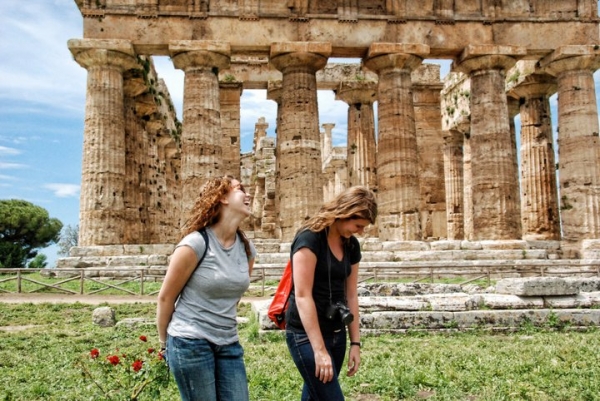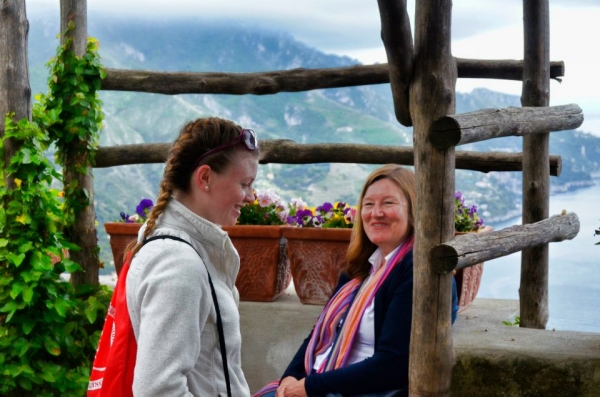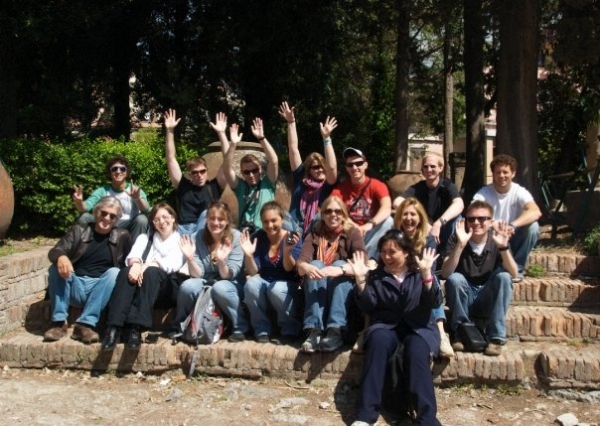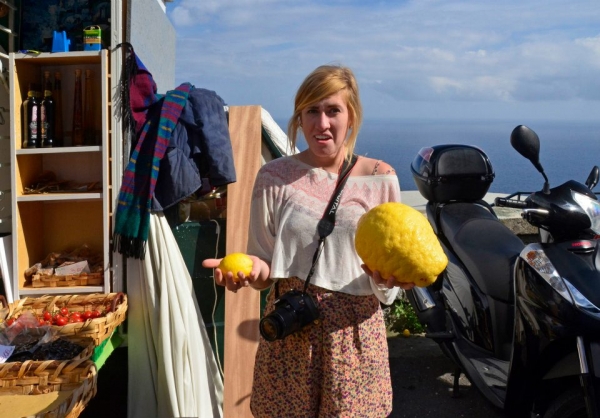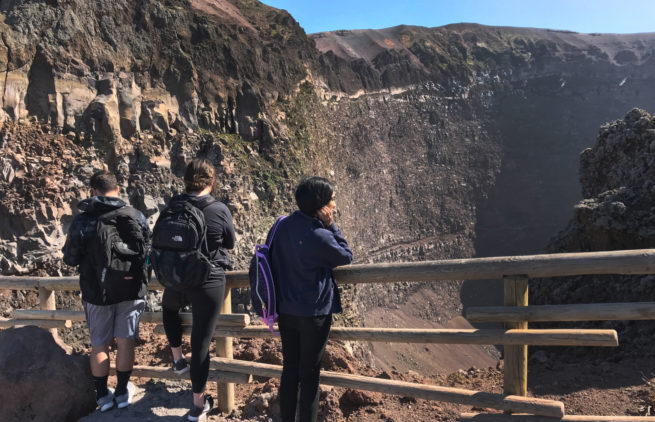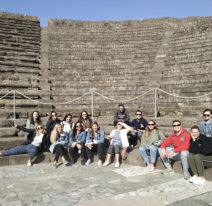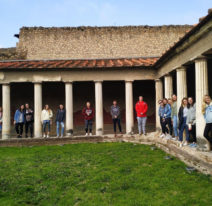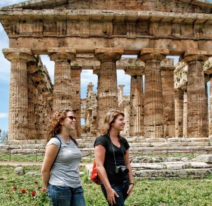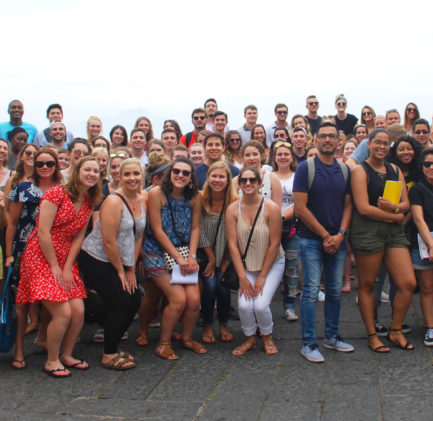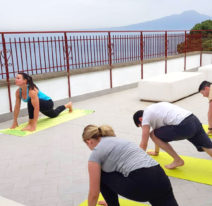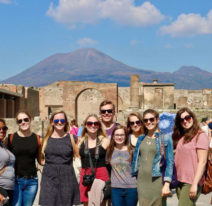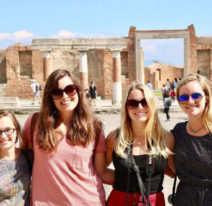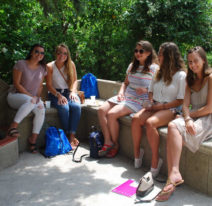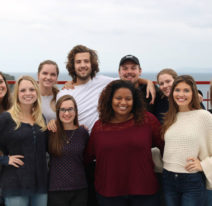COURSES
HIST 350
45 contact hours, 3 credits
Professor Fabrizio Novellino, Ph.D.
The course examines the history of food from a variety of points of view. Food is not just nourishment; food is part of mankind and its evolution. Without food, history could not be possible. Food is like a book: it tells us who we are and where we are from, and it describes our habits, religion, and traditions. The course aims to explain how food has influenced history, including religious prescriptions, class identity, borders, and drawing the line between the rich and the poor. History of Food will attempt to explain how nourishment has changed throughout the ages, how we have shifted from the “symposium” to McDonald’s, and how, still today, food is a strong element of identity.
JU 330
45 contact hours, 3 credits
Prof. Alessandro Buffa
In this course, students will discover the historical link between New York City and Naples. Students will understand these two cities within wider currents, moving across time and space, and trace multiple histories that connect past, present, and future in both a local and global sense. Topics will include the early slave rebellions in the Americas, the 1648 rebellion of Naples, the U.S. military presence in Naples during World War II and Cold War era, Italian immigration to New York City, and the urban crises of Naples and New York in the 1970s and 1980s.
In this course, music, cinema, and other cultural expressions are not considered as a background but become central narrative devices. Sustained by the saxophone sound of James Senese, the electro funk of Afrika Bambaataa, the echo chamber effect of Sha-Rock, the poetry of Sandra María Esteves, and the blue maps of Bobby Womack and Mario Merola, we will study unexpected and critical connections between New York City and Naples.
In addition to music, films, and poems, we will use other primary sources collected at the archives of the Center for Puerto Rican Studies at Hunter College, the Schomburg Center for Research in Black Culture of the New York Public Library, the Bronx County Historical Society, and the National Library of Naples.
45 contact hrs, 3 credits
This course surveys cultural relations between Italy and the United States from the end on 19th century to the present. Rather than just comparing historical events we will place them in juxtaposition focusing on unexpected and critical connections. We will embark on a transatlantic journey tracing multiple histories that connect past and present, global and local: Migration, sounds, moving images, international relations and politics, radicalism, race and racialism, the American Century, the truly global aspect of World War II, organized crime, the urban crises of the 1970s, global media flows, power and mass communication, youth culture, and imperialism
JU 330
45 contact hours, 3 credits
Prof. Alessandro Buffa
In this course, students will study the economic and political causes and histories of migration from the Mediterranean region. They will examine the historic legacies of Mediterranean migration through the twentieth century with the mass emigration from the Southern Mediterranean to the Americas. Through the lens of international economics, demographics, and geopolitics, students will understand the phenomenon of Mediterranean migration. Additionally, students will analyze the effects of this mass migration on the stability of the European Union and the Euro zone and will propose solutions to ongoing, systemic pan-European political and demographic challenges.
JU 330
45 contact hours, 3 credits
Prof. Alessandro Buffa
Inspired by Paul Gilroy’s book The Black Atlantic, this course focuses on the traditionally repressed and hidden Black history of the Mediterranean region. Through the examination of primary historical documents and the accounts of historians, students will discover a range of topics such as the Masaniello Revolt of 1648 in Naples, the Haitian Revolution of 1799, the international dimension of Black Power, the racialization of urban space, and the contemporary migration from Africa to the Mediterranean.
Faculty
Fabrizio Novellino
Chair of Humanities - Area: HistoryAlessandro Buffa
Area: American StudiesCOURSE HIGHLIGHT
HISTORY OF ITALIAN FOOD AND CULTURE
HIST 350
Professor Fabrizio Novellino, Ph.D.
The course examines the history of food from a variety of points of view. Food is not just nourishment; food is part of mankind and its evolution. Without food, history could not be possible. Food is like a book: it tells us who we are and where we are from, and it describes our habits, religion, and traditions. The course aims to explain how food has influenced history, including religious prescriptions, class identity, borders, and drawing the line between the rich and the poor. History of Food will attempt to explain how nourishment has changed throughout the ages, how we have shifted from the “symposium” to McDonald’s, and how, still today, food is a strong element of identity.
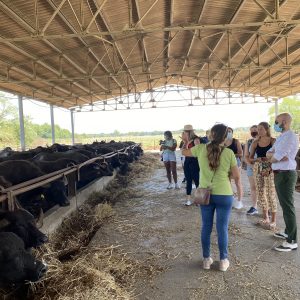
INTERNSHIP POSITIONS AVAILABLE:
- Quanto basta cooking school
- Mozzarella factory
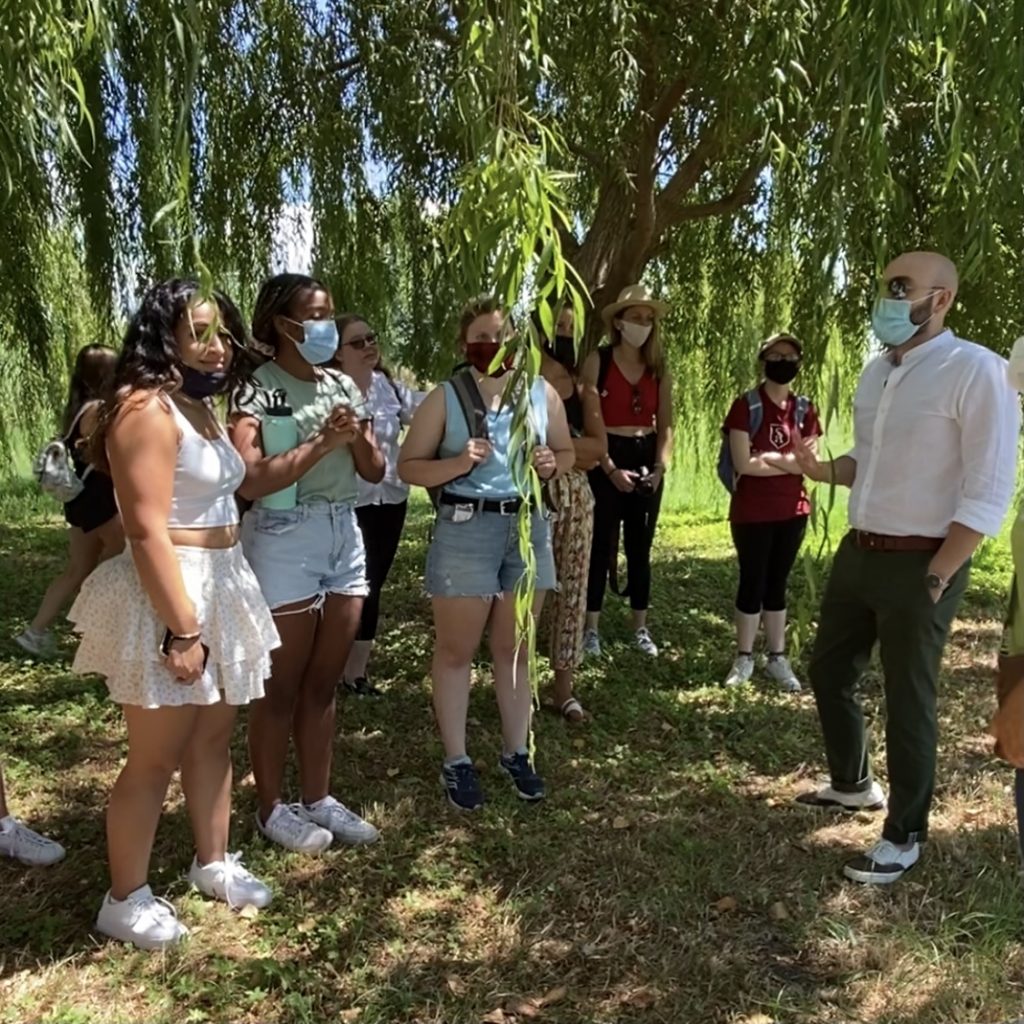
“My class is not just about food. It’s about tradition, it’s about the economy, it’s about experiencing what you are going to study…because you have the chance to join a class in the best place in the world with the best food in the world. So you are not just going to read the book, but also touch and eat and see with your own eyes all the wonderful food, the tradition and the history behind it”
– Fabrizio Novellino
Our Mission
Sant'Anna's mission is to educate, support, and inspire international students to become active citizens of the world. We are committed to academic excellence within an authentic and engaging Italian community.Discover Sant'Anna
Mission and GoalsAt Sant’Anna we strive to provide students from across the world a unique, hands-on learning experience where they can cultivate real world skills and knowledge.
Because the school is located in Sorrento, one of the most harmonious cities southern Italy has to offer, our students are truly able to gain a global awareness and appreciate diversity while studying abroad. Our goal is to help guide participating students into becoming responsible, open-minded members of society.
Our hope is that each student can leave Sant’Anna with an appreciation of the Italian culture as well as the knowledge acquired through their academic courses.
We are so passionate about the importance of international education and training in a student’s academic career, and we are dedicated to doing whatever it takes to providing students with a life changing experience.
Learning
Mediterranean Location
Our LocationWhy choose Sorrento?
Study abroad programs in Italy have traditionally focused on the popular cultural centers of Rome, Florence, Milan, and other cities in the north of Italy. At Sant’Anna Institute, study abroad students have the opportunity to experience the unique culture, customs, and climate of southern Italy.
Sant’Anna is located in the stunning town of Sorrento at the beginning of the Amalfi Coast, just 20 miles south of Naples. Perched atop hundred foot cliffs that face the Gulf of Naples, Sorrento is within sight of rugged snow-capped mountains, emerald waters, black sand beaches, cliff- hanging villages, and the world’s best known volcano: Vesuvius.
Sorrento is a safe, walkable, and picturesque center of international tourism. It has an international population, making it a small town, with a cosmopolitan feel.
Sorrento also boasts:
- Friendly, gracious people
- Southern hospitality
- Italian style
- Bustling shopping streets and traditional Roman-style alleys
- A mild, sun-drenched Mediterranean climate
- Culinary traditions based on the seafood, and locally grown, fresh produce
- Streets lined with lemon and orange trees
- Hillsides covered with olive groves and vineyards
- Home to some of the best pizza and gelato you will find anywhere
Sorrento is a treasure all its own and a passageway to the:
- tunning islands of Capri and Ischia
- baroque splendor of Naples
- majestic Greek temples at Paestum
- historic Roman ruins of Pompeii and Herculaneum
- world-famous collection at the National Archaeological Museum in Naples
- cliff hanging villages of the Amalfi Coast, like Positano, Amalfi and Ravello
- world’s best known volcano, Mount Vesuvius
It’s the perfect city to discover a home away from home with a hometown feel!
Sant’Anna Institute is located overlooking the Marina Grande of Sorrento, perched on the cliffside with stunning views from the sea-facing windows, and it’s a short walk to the harbor and the harbor-side restaurants.
The Institute is located a short 15-minute walk from the center of town and 20 minutes from the Sorrento train and bus station.
The Residence Hall was established in 2017 and is on the third and fourth floors of the Institute, overlooking the picturesque Marina Grande.





